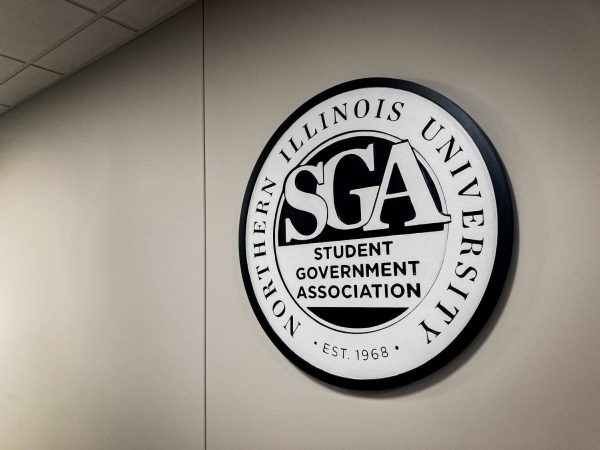Grades aren’t everything
December 6, 2004
The importance of a student’s grade point average may not be as substantial as some academic advisers make it out to be.
Companies looking for accountancy, finance or computer science majors tend to be looking most for a higher GPA, said Ronald Short, director of NIU’s Career Planning and Placement Center.
“You would be surprised how many freshmen and sophomores barely get a 2.0 cumulative GPA,” Short said. “Freshmen and sophomores, when they are getting adjusted to college life, do not get the GPA, and by the time they are juniors and seniors, it’s too late.”
GPA may also be more important for students pursuing a career in education.
A higher GPA in education might exclude students from getting a job in some school districts, Short said.
“Some superintendents worry that they might not have a good relation to students because their GPAs are so high, which is kind of sad,” Short said. “I wouldn’t be worried if someone came to me with a 4.0.”
Although some job-seekers lie about their work experience on resumes, it may not be as easy to get away with lying about GPA.
“Job candidates lying about their GPA would not get away with it for very long. We typically would find out their GPAs,” said Christina Wiley, campus development manager for KPMG, an accounting and finance firm. “We look at their transcripts.”
GPA – Gathering Profound Amounts of Insignificance?
While GPA is important in some fields, the amount of importance it carries with employers may be on the decline.
Of 1,225 employers with job listings on NIU’s Victor eRecruiting Web site, which is managed by the CPPC, 174 require a GPA on prospective employees’ resumes.
“If a student does not have a 3.0 GPA, we instruct them not to put it on there, but if employers are looking for it, they are going to know why it is not there,” Short said.
The CPPC was suggesting people with a GPA below 3.0 leave it off their resume as early as 1982, said Kristi Misic, programmer for the NIU foundation and an NIU alumna. Misic graduated from NIU with a bachelor’s degree in business in 1982 and a master’s in management information systems in 1991.
“GPA is helpful when you apply for the first couple of jobs,” Misic said. “GPA helps gauge what it takes to earn a degree from NIU, and I thought I learned a lot.”
What are employers really looking for?
While GPA is considered important for finance, accountancy and business, even academic advisers within the fields say GPA is not the most important thing employers look for when hiring.
“In most cases, it is not the most important thing because employers will look at the whole package, including extracurricular activities,” said Shannon Gates, academic adviser for finance. “But GPA is very important because it is used as an initial screener to even be considered for a job.”
Most employers look at the cumulative GPA first, Gates said.
“A prospective employee with a 3.2 or 3.4 GPA who is active will have a better opportunity than someone with a 4.0 with none of that,” she said.
GPA is more of a starting point for when an employer is looking to fill a job opening, Wiley said.
Wiley said KPMG, the 34th largest employer of NIU students, is more apt to look at the entire package rather than just the GPA.
In the business field, the importance placed on GPA also could depend on how competitive the job market is at the time.
“Business in general, GPA is very important because students might not have a portfolio,” Gates said. “They have to use some factor and GPA is usually considered most important.”
Despite what other advisers say, Rowene Linden, academic adviser for accounting, said it is important for students not to underestimate the importance of a GPA.
Top NIU graduate employees
1st: The top employer of NIU graduates is NIU, with 1,019 graduated employees.
2nd: Motorola Inc., with 709 NIU employees.
3rd: With 489 NIU graduates self-employed, this group is the third-largest category.
4th: Abbott Laboratories, with 464 NIU employees.
Source: CPPC *The list keeps track only of graduates who report back to the center.












